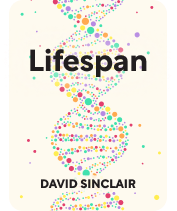

This article is an excerpt from the Shortform book guide to "Lifespan" by David Sinclair. Shortform has the world's best summaries and analyses of books you should be reading.
Like this article? Sign up for a free trial here .
Are you looking for Lifespan quotes by David Sinclair? What are some of the most noteworthy passages worth revisiting?
David Sinclair is a professor of genetics and co-director of the Paul F. Glenn Center for Biology of Aging Research at Harvard University. In his book Lifespan, he argues that aging is a treatable disease and that we are slowly but surely getting closer to curing it.
Below is a selection of passages with explanations.
Lifespan Quotes
In his book Lifespan, Sinclair discusses why aging happens, how we can prevent it, and how we might create a world where nobody has to die of old age. He believes that old age is a deadly disease, and he’s dedicated his life to curing it.
The following David Sinclair’s quotes highlight some of the key ideas from the book Lifespan:
“Aging, quite simply, is a loss of information.”
As a counterpoint to the DNA damage theory, Sinclair developed the “Information Theory of Aging.” His theory states that we age due to an accumulation of epigenetic damage, rather than genetic damage.
First, it’s important to understand that every cell in your body, from skin to hair to brain tissue, has the exact same DNA. The epigenome, consisting of proteins wrapped around the DNA, controls which genes in any given cell are “on” and which are “off.” That’s how we end up with all of those different types of cells—it’s not a result of the information encoded in the genes, but rather how your body uses that information. Therefore, changes to the epigenome can create changes in our bodies without actually altering our genes.
Sinclair calls these epigenetic changes “noise,” similar to radio static or garbled transmission. The goal of his research is to figure out how to clear up that noise so that the genetic messages come through loud and clear like they did when we were young.
According to Sinclair, the Information Theory of Aging is good news, because fixing epigenetic damage is much easier than repairing the DNA itself—in fact, Part 2 of this guide is all about ways to do just that.
“I believe that aging is a disease. I believe it is treatable. I believe we can treat it within our lifetimes. And in doing so, I believe, everything we know about human health will be fundamentally changed.”
Throughout recorded history, we’ve always accepted aging as something that just happens to people. According to David Sinclair, aging is a disease that can be treated. In fact, old age shares several key traits with cancer:
- Both diseases are more common in older people (by definition, in the case of old age).
- Both diseases used to be considered impossible to treat, let alone cure.
- Both diseases are eventually fatal if left untreated.
“There isn’t much debate on the downsides of consumption of animal protein. Study after study has demonstrated that heavily animal-based diets are associated with high cardiovascular mortality and cancer risk.”
Sinclair warns against the consumption of animal protein and recommends a vegetarian diet. He says that a vegetarian diet can activate hormesis (is the process by which our bodies become stronger in response to stressors). The relatively low levels of certain proteins (as compared with meat) can trigger our survival mechanisms in the same way that calorie restriction does.

———End of Preview———
Like what you just read? Read the rest of the world's best book summary and analysis of David Sinclair's "Lifespan" at Shortform .
Here's what you'll find in our full Lifespan summary :
- Why biologist and geneticist David Sinclair believes old age is a curable disease
- The potential problems of a world where people never die
- How the elderly stifle the economy






